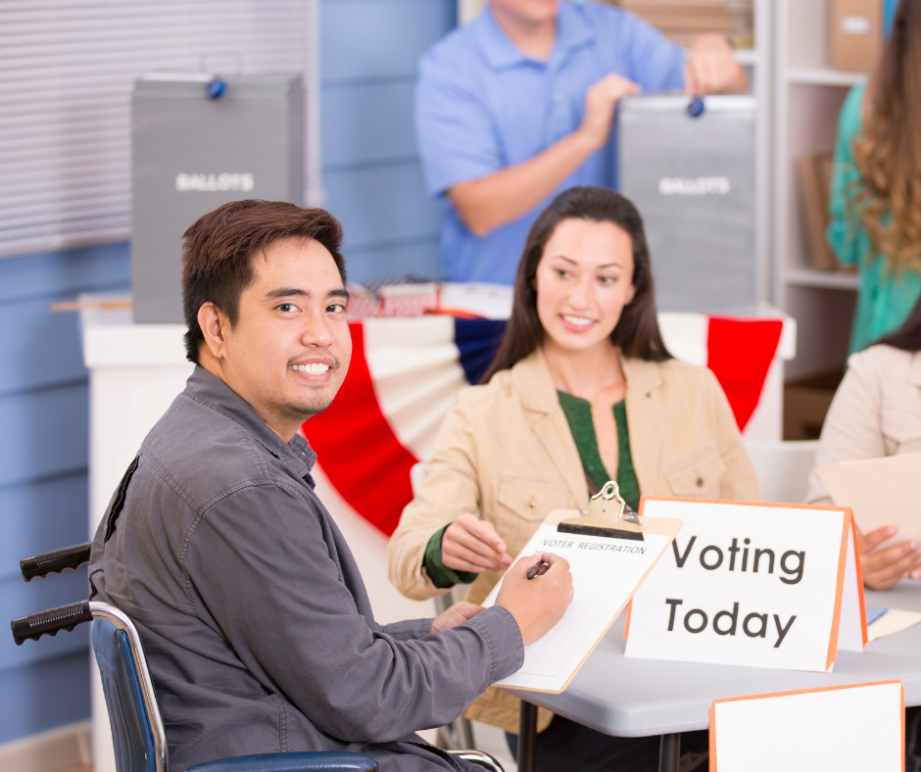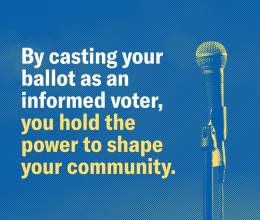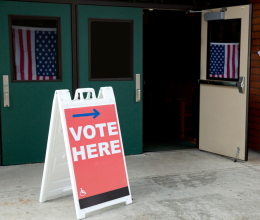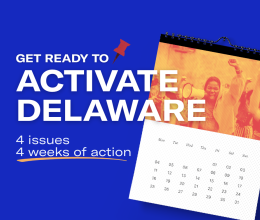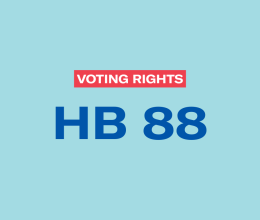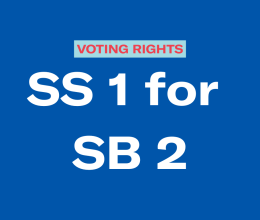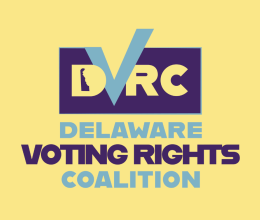By: Laura J. Waterland, Project Director, Disabilities Law Program of CLASI
An unfortunate byproduct of the recent Delaware Supreme Court decision striking down HB 25 (same day registration) and SB 320 (vote by mail) is that convenient and accessible voting will remain elusive for many. Vote by mail and same day registration greatly expand opportunities for voters to cast their ballots, particularly voters with disabilities, elderly voters, voters who live in facilities, and voters who live in rural areas that lack infrastructure like public transportation.
My organization, the Disabilities Law Program at Community Legal Aid Society, Inc. (CLASI), advocates specifically for access for voters with disabilities, who represent a surprisingly large chunk of the population—one in four adults in Delaware identifies as having a disability. Unfortunately, voters with disabilities have historically voted less often than some other demographic groups, because for these communities, there are numerous barriers to voting.
First, we have the voting machines themselves. Unlike many other jurisdictions, Delaware uses the same machines statewide, which are close to state of the art in terms of providing accessibility. If a person with disabilities wants to go to the polls, the equipment for the most part will allow private, independent voting, so long as the poll workers know how to work the features and don’t discourage the voter from using them (which happens).
This is of course assuming a person can actually access the polling place. Delaware has come a long way since the Help America Vote Act (HAVA) was first passed in 2002. When we at the Disabilities Law Program first started monitoring polling places for accessibility in 2004, we found a polling site where the only disability access was a service ramp (with no railing) for food delivery, forcing people to wheel through a commercial kitchen to get to the polling booths. There were community centers and fire halls with gravel parking lots and ramps without rails that dumped onto grass. We don’t see that too much anymore, but we do find locations without accessible parking, the occasional locked door to the accessible entrance, accessible entrances at large distances from parking, etc.
Then there is the issue of transportation. We frequently find inadequate accessible parking at polling places. Not having an access aisle next to a parking space that has been designated for voters with disabilities is the most common problem. Think about trying to get out of a van or a car if you have a wheelchair or even a walker, if there is no access aisle (hint: you won’t be able to). Curbside voting could alleviate some of these issues — something Delaware could implement, as many other states already have.
Voters who rely on public transportation are at an even greater disadvantage. There is very little in the way of accessible shared ride services. Fixed route service is sparse in rural areas. Paratransit, even if it is running a regular schedule, requires large windows of time for pick-ups and drop-offs and won’t wait for someone to vote. Paratransit access in non-urban areas is extremely limited – voting if using paratransit is essentially a half-day or full-day event — and it creates a financial barrier for voters.
Despite the removal of voting by mail and same day registration, there is still a new avenue for voting that is beneficial to Delaware voters with disabilities this year: early voting. Early voting allows people with disabilities more flexibility to arrange for transportation, for example. And to time their voting to avoid crowds and waits, or to arrange for an attendant or companion to assist them with voting, if need be.
Vote by mail would of course be a massive benefit for people with disabilities (and everyone else) who want to vote independently and privately at home for whatever reason — physical or emotional needs or limitations, lack of transportation, inability to get off work, lack of child care, etc. Bringing vote by mail back should be a priority concern for the General Assembly in the coming years.
In the meantime, the Department of Elections can still improve absentee voting processes. The Delaware Constitution allows absentee balloting for people who are “sick” and people with “physical disabilities,” but even though absentee voting is available for disabled voters, the method of absentee voting isn’t totally accessible for all people with disabilities.
People with visual disabilities or physical disabilities that limit the use of their hands can’t fill out a paper absentee ballot independently or prepare the ballot for mailing. They rely on the use of technology – screen readers, pointers, and other assistive devices and computer programs – to receive, fill out, and return ballots.
Delaware law requires the state to provide a mechanism for voters with physical disabilities to submit their ballots electronically. However, the process for applying for and then receiving an electronic absentee ballot is very cumbersome. There is a complicated process for setting up an encrypted state email account in order to submit a ballot securely. Think about individuals living in congregate settings who need electronic access—how do they vote independently and privately? Most don’t have separate email accounts or even a computer. The Department of Elections needs to make a concerted effort to simplify both the application for an absentee ballot and the electronic delivery and submission of absentee ballots for voters with disabilities.
It’s a shame that Delaware went backward this year when it comes to access to the ballot. Delaware’s election processes are behind the times and lag many other states. Our neighboring states, Maryland, New Jersey and Pennsylvania, all allow any voter to cast a ballot by mail, and thirty-five states have no-excuse absentee voting. If the General Assembly believes that every eligible person ought to be able to vote, they should commit to finally passing a constitutional amendment to make vote by mail a permanent reality in Delaware.
Nevertheless, there are significant ways that the Department of Elections and the state can improve accessibility for voters with disabilities now by paying more attention to physical access on Election Day, creating and supporting better transportation options, and simplifying and updating electronic absentee ballot delivery and return for those who qualify.
For more information on CLASI’s Disabilites Law Program, visit their website.
